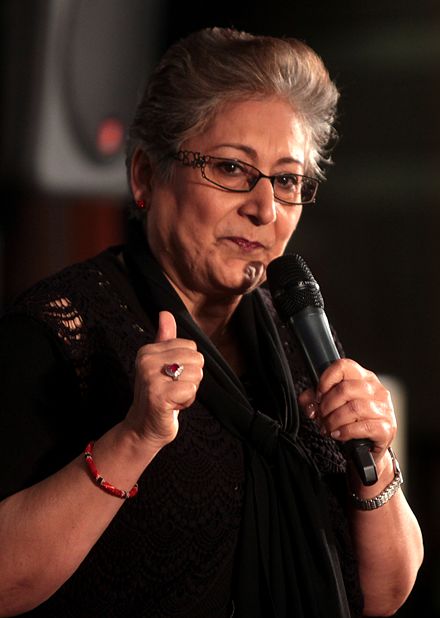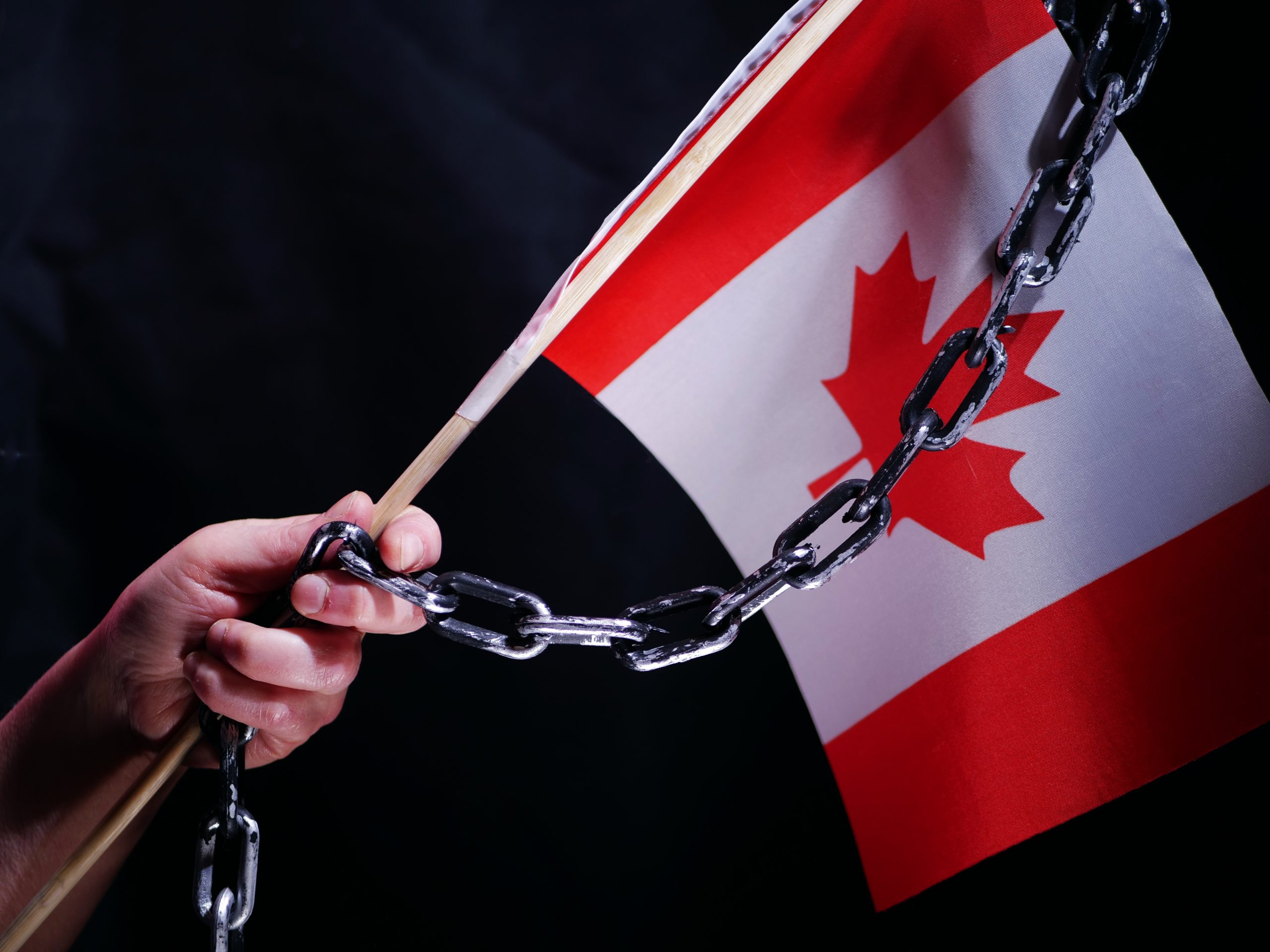Islamic Relief Canada (IRC), a steady contributor of funds to the Islamist charity, Islamic Worldwide Relief (IRW), scored a victory in its ongoing effort to protect itself and its UK-based affiliate from legitimate scrutiny and criticism. The victory comes in the form of a settlement with prominent counter-Islamists in Canada who had previously warned government officials of IRC’s support for IRW, which in turn gave money to Palestinian organizations that appeared to serve as Hamas proxies.
Instead of explaining, or better yet – severing – their relationship with an organization with … a terrible record, IRC officials have used Canada’s legal system to silence anyone who would challenge them about this relationship.
In light of IRC’s victory, Canadians who write or talk about the problem of charitable donations being used to fund terrorism overseas could very well lose their homes — not because the problem doesn’t exist — but because speaking about the problem is “Islamophobic.”

As part of the settlement announced on June 9, prominent counter Islamists in Canada including Raheel Raza, her husband Syed Sohail Raza, and researcher Tom Quiggin signed a “clarification” admitting that they did not exercise sufficient due diligence in their writings about IRC, further declaring that it was not their intention to suggest that IRC “supports terrorist groups, has an Islamist agenda, or is a ‘front’ or ‘sham’ organization.” The remaining signatories included Tahir Aslam Gora who immigrated to Canada from Pakistan in 1999 after receiving death threats from Islamists for his criticism of the Taliban, YouTuber Joe Hazelton who had interviewed Quiggin in 2018 and Benjamin Dichter, a colleague of Quiggin’s.
As part of the settlement to a $2.5 million lawsuit filed by IRC in 2018, the defendants affirmed that “it was NEVER their intention to claim or assert Islamic Relief Canada, in any way, engaged in nefarious or improper conduct.” They also agreed to remove— and ask others to remove —the “defamatory statements” from the internet. (Full Disclosure: The Middle East Forum, FWI’s parent organization, was a recipient of a letter asking that an interview with Mr. Quiggin be removed from its website. The Forum has not complied with the request.)
IRC declared that it was the target of an “Islamophobic” misinformation campaign in a press release announcing its victory and that the IRC is “a respected, purely humanitarian Canadian organization” with “a track record of delivering aid in some of the most difficult and dangerous contexts across the world.”
Canada’s public broadcaster, CBC, amplified this message in its coverage of the settlement, portraying Quiggin as beyond the pale of legitimate discourse in Canada by highlighting his involvement in “truck convoy” protests against the policies of Canadian Prime Minister Justin Trudeau. No mention was made of the well-respected work the Razas – both Muslims – have done in the efforts to promote women’s rights and reform in Muslim-majority environments. The implication of CBC’s coverage was clear — the IRC gave a bunch of right-wing kooks the drubbing they deserved, good riddance to them.
Predictably, CBC’s coverage steered clear of the main allegation leveled at IRC and its parent organization, IRW, in a 132-page document which precipitated the 2018 lawsuit and which IRC is trying to scrub from the internet with its demand of the plaintiffs that they contact others who have published its findings and ask them to remove the information.
The allegation is pretty direct and simple: by sending money to Islamic Worldwide Relief, some of which comes from Canadian taxpayers, IRC helped fund Hamas proxies. It was this allegation that Quiggin, the Razas, and other defendants repeated in numerous interviews. Instead of dealing with this allegation, CBC dismisses the Quiggin Report as a “long, winding document [that] packages in a pseudo-academic format conspiratorial references to an ‘Islamist cancer’ and ‘globalist beliefs’ within the federal government.”
If the CBC wanted to discredit the notion that by sending money to the IRW, the Canadian charity was ultimately providing material support for terrorism, it would have a tough time finding evidence to do so in the legal complaint IRC filed in 2018. The complaint acknowledges that IRC is “affiliated with IRW.” In recounting IRC’s relationship to IRW, which it describes as a “non-governmental organization based in the United Kingdom,” the complaint states that the Canadian charity provides money to the umbrella organization on an “individual contract basis.” In supporting IRW projects, the complaint states, “IRC raises funds that are used all over the world to fund projects aimed at, among other things, preventing disease and early death, ensuring that children are able to attend school, and protecting the health, dignity and safety of women.”
That’s fine as far as it goes, but there’s a huge problem. By kicking up funds to IRW, almost £29.8 million in 2021, the IRC is sending money to an international charity that has been deemed a terror-financing organization by Israel and the United Arab Emirates. And while we’re at it, IRW is generally regarded a front group for the Muslim Brotherhood, an organization that seeks to impose a theocratic system of governance in countries throughout the Middle East and the rest of the world.
This isn’t really too hard to believe. In 2004, Hani El-Banna, one of IRW’s founders, described Hassan Al-Banna, the founder of the Muslim Brotherhood as “a phenomenon, just like Nelson Mandela and Muhammad Ali.” In 2012, Islamic Relief co-founder Essam El-Haddad became the senior foreign policy advisor to Egypt’s short-lived Muslim Brotherhood President, Mohamed Morsi. In the wake of the collapse of the Morsi regime, Haddad was jailed by an Egyptian court for “financing terrorism through the exploitation of global charities such as Islamic Relief.”
IRW’s director Heshmat Khalifa, who also served on the organization’s board of trustees, was forced to resign in July 2020, after The Times of London revealed that, in 2014 he had called Jews the “grandchildren of monkeys and pigs” and declared Egypt’s president to be a “Zionist pimp'” on Facebook.
The following month, IRW’s entire board resigned after it was discovered that Almoutaz Tayara, the man they chose to replace Khalifa had, according to the Times of London, described leaders of Hamas, as “‘great men’ who responded to the ‘divine and holy call of the Muslim Brotherhood.'”
And if all this wasn’t enough, in late 2020, the U.S. State Department reported that IRW had a problem with “blatant and horrifying anti-Semitism and glorification of violence exhibited at the most senior levels of,” the organization and that “this record of anti-Semitism presents a significant issue for all donors and donor countries to IRW.”
And more recently, in February 2023, FWI reported that Islamic Relief appears to have taken over “as the major sponsor of an “orphan sponsorship program” organized by the Unlimited Friends Association (UFA), a group that is “closely aligned with senior Hamas leaders, provides cash to the families of so-called martyrs in the Gaza strip, and promotes virulent anti-Semitic rhetoric. A promotional video produced by UFA indicates that Islamic Relief Canada branch is a leading donor.
None of this sounds like the actions of a humanitarian organization dedicated to “preventing disease and early death, ensuring that children are able to attend school, and protecting the health, dignity and safety of women.”
IRW’s actions should be of grave concern to IRC officials and the Canadian taxpayers they rely upon for funds. But instead of explaining, or better yet – severing – their relationship with an organization with such a terrible record, IRC officials have used Canada’s legal system to silence anyone who would challenge them about this relationship.
Interestingly enough, the IRC’s 2018 complaint declares that by merely speaking about these problems highlighted above, IRC’s critics encouraged their listeners to believe that the Canadian charity endorses terrorism and Islamic extremism, supports an “Islamist ideology,” “violent activities or causes,” and provides material support to terrorist organizations. The underlying logic is that the truth of the claims about IRC do not matter, only their impact on the organization. Well, sometimes the truth hurts, as well it should.
Nobody involved with the case is talking and getting experts regarding Canadian media law to comment has so far proven impossible. But from the safety of the United States — where defamation is much harder to prove than it is in Canada — it appears that the settlement is a milestone of censorship in the West and represents a grievous setback in the fight to defeat Islamism in Western democracies.
Dexter Van Zile is managing editor of Focus on Western Islamism.
